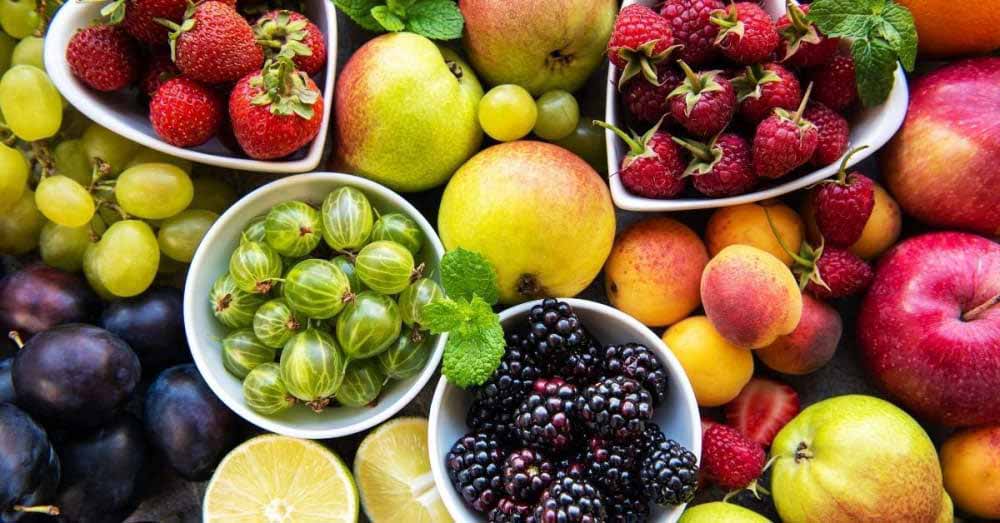Summer Fruits
Summers may bring sunny days and respite from the biting cold, but the weather can make things extremely uncomfortable and also lead to sweating, various seasonal issues and dehydration. While drinking water is extremely essential, some seasonal foods can also come to your rescue.
As the mercury level rises, the risk of many diseases increases too. The scorching heat usually brings with it a lot of diseases such as typhoid fever, diarrhoea, jaundice, heat stroke, dehydration, and skin problems.
Also Read:
- Amazing Benefits of Litchi Fruit: The Queen of Fruits
- The Nutritious Fruit of Summer – Pomegranate
- Medicinal Values of Fruits and Vegetables
- Plum – The Mouth Watering Fruit

Interestingly, many of these summer fruits are effective in fighting sun damage and provide an instant boost of energy. May be this is mother nature’s way of protecting us from the heat.
During the summer season, our body loses more water as we sweat a lot. Therefore, it is important to keep your body hydrated during the summer. Adding summer fruits in your diet is one of the easiest ways to do that.
Table of Contents
Here is a list of 5 best fruits that can keep your body cool and hydrated:
Watermelon:

Watermelon has more of this nutrient than any other fruit or veggie – even tomatoes. To load up on lycopene, choose a melon with bright red flesh rather than yellow or orange. And the riper, the better. Also, seedless melon tends to have more lycopene than those with seeds. Watermelon is rich in an amino acid called citrulline that may help move blood through your body and can lower your blood pressure. Your heart also enjoys the perks of all the lycopene watermelon contains. Studies show that it may lower your risk of heart attacks. Of course, your whole lifestyle affects your heart health. So make sure you also work out, don’t smoke, limit saturated fat, and keep up with your doctor’s advice.
Cucumber:

To maximize their nutrient content, cucumbers should be eaten unpeeled. Peeling them reduces the amount of fiber, as well as certain vitamins and minerals. It promotes hydration – While you meet the majority of your fluid needs by drinking water or other liquids, some people may get as much as 40% of their total water intake from food. Because cucumbers are composed of about 96% water, they are especially effective at promoting hydration and can help you meet your daily fluid needs
Guava:

Guavas are tropical trees originating in Central America. Their fruits are oval in shape with light green or yellow skin and contain edible seeds. What’s more, guava leaves are used as an herbal tea and the leaf extract as a supplement. Guava fruit or leaf extract may have a positive effect on heart health by lowering blood pressure, decreasing bad cholesterol, and increasing good cholesterol. A study on women who experienced painful symptoms found that taking 6 mg of guava leaf extract daily resulted in reduced pain intensity. It appeared to be even more powerful than some painkillers.
Mango:

The yellow colour in mangoes is imparted by a pigment that protects your eyes from the harmful rays of the sun – which is at its full force in the summer season. A pilot study in 2018 demonstrated that people with chronic constipation who ate mango over a 4-week period, enjoyed significant improvement in their symptoms, in part due to the fibre content but potentially from other compounds in the fruit, too. Interestingly, the leaves of the mango tree also appear to offer potential antidiarrheal activity thanks to plant chemicals in the leaves.
Muskmelon:

This fruit will also keep your heart beating strong and stabilize blood pressure. Most importantly, it aids with digestion and regularizes bowel movement. Almost 90 percent of muskmelon is water. To prevent dehydration you need to drink enough water and consume more fruits and vegetables loaded with water. You can consume a variety of fruits including watermelon, mangoes, kiwi, berries and muskmelon. Enjoy a fresh bowl of fruits every day. Muskmelon is also good for your skin. High amount of antioxidants can help in purification of skin. It is also loaded with skin-friendly collagen. It is also used to prepare face packs.













































